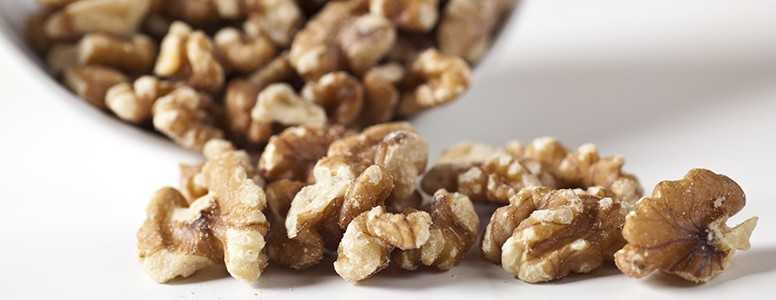A new study suggests that eating tree nuts, such as walnuts, could help reduce the risk of cardiovascular disease.
The study, published in the American Journal of Clinical Nutrition, also found that eating tree nuts can cut down the risk of heart disease in people with type 2 diabetes.
Researchers at the Life Sciences Research Organisation conducted a review of 61 controlled trials investigating how tree nuts affected cardiovascular health. Previous research has linked walnut consumption with improved brain health, reduced LDL cholesterol and reduced blood pressure.
In the trials, nuts were given to the intervention group rather than participants having to rely solely on dietary advice when consuming nuts. The dose of the nuts varied from 5-100 grams and most participants followed their typical diet. Walnuts were investigated in 21 of the 61 trials.
Study author Dr. Michael Falk, PhD, Life Sciences Research Organisation found that consumption of tree nuts lowered total cholesterol, LDL cholesterol and triglycerides. Additionally, tree nuts could help control ApoB, the main protein in LDL cholesterol.
Consuming at least two servings (two ounces) per day of tree nuts had stronger effects on total cholesterol and LDL cholesterol. Heart disease is a common complication of diabetes, and reducing total cholesterol and LDL cholesterol can reduce this risk.
Dr. Falk said: “Our study results further support the growing body of research that tree nuts, such as walnuts, can reduce the risk of cardiovascular diseases.
“Tree nuts contain important nutrients such as unsaturated fats, protein, vitamins and minerals. Walnuts are the only nut that provide a significant amount (2.5 grams per one ounce serving) of alpha-linolenic acid (ALA), the plant-based form of omega-3s.”
Other health benefits noted from walnut consumption included a source of fibre (two grams per ounce) and protein (four grams per ounce).






